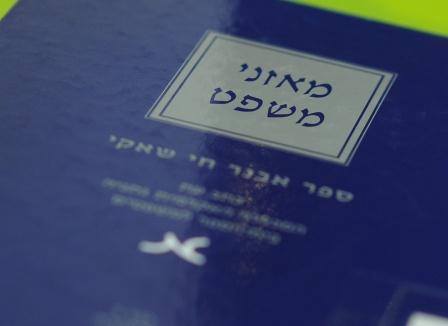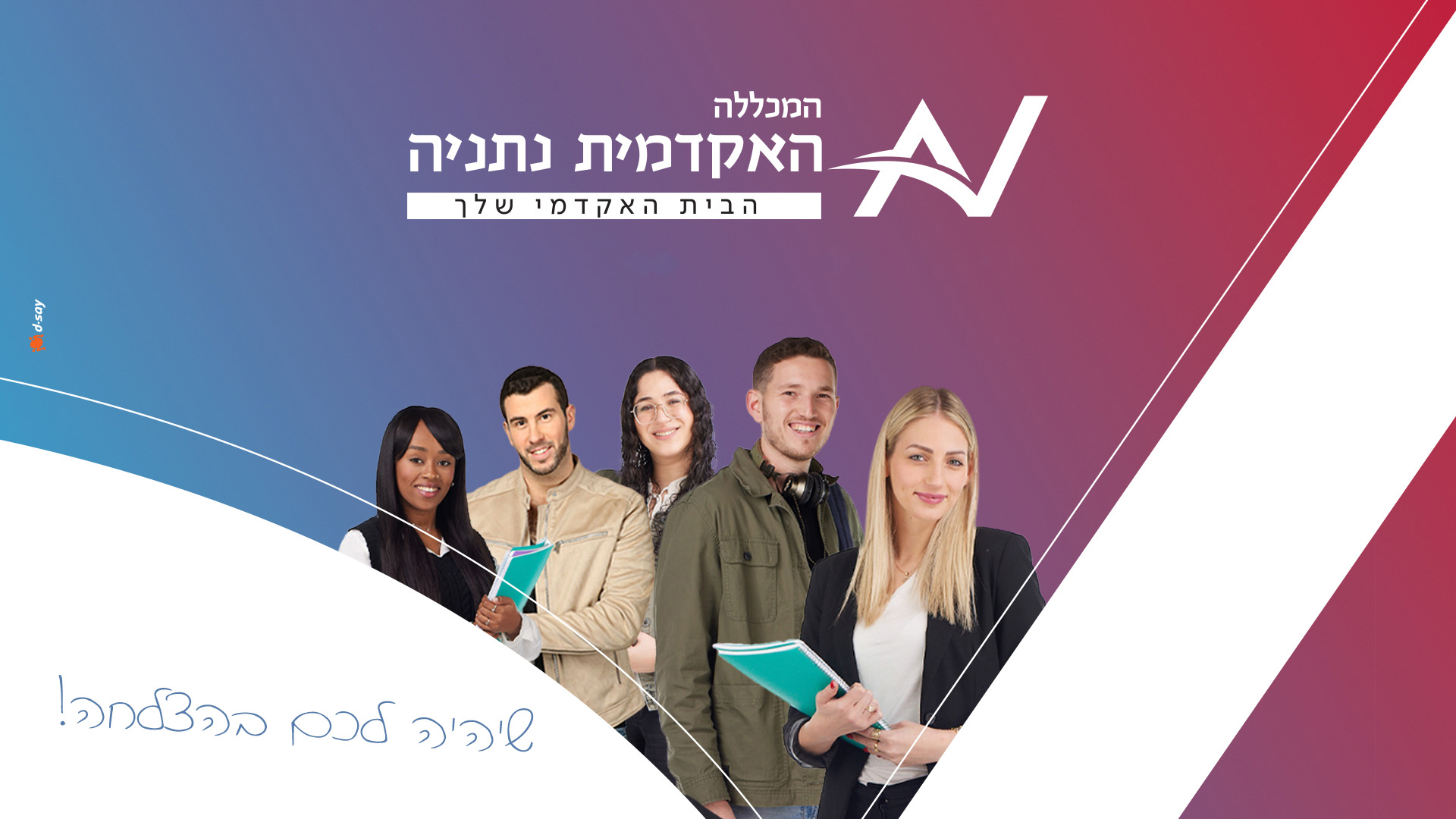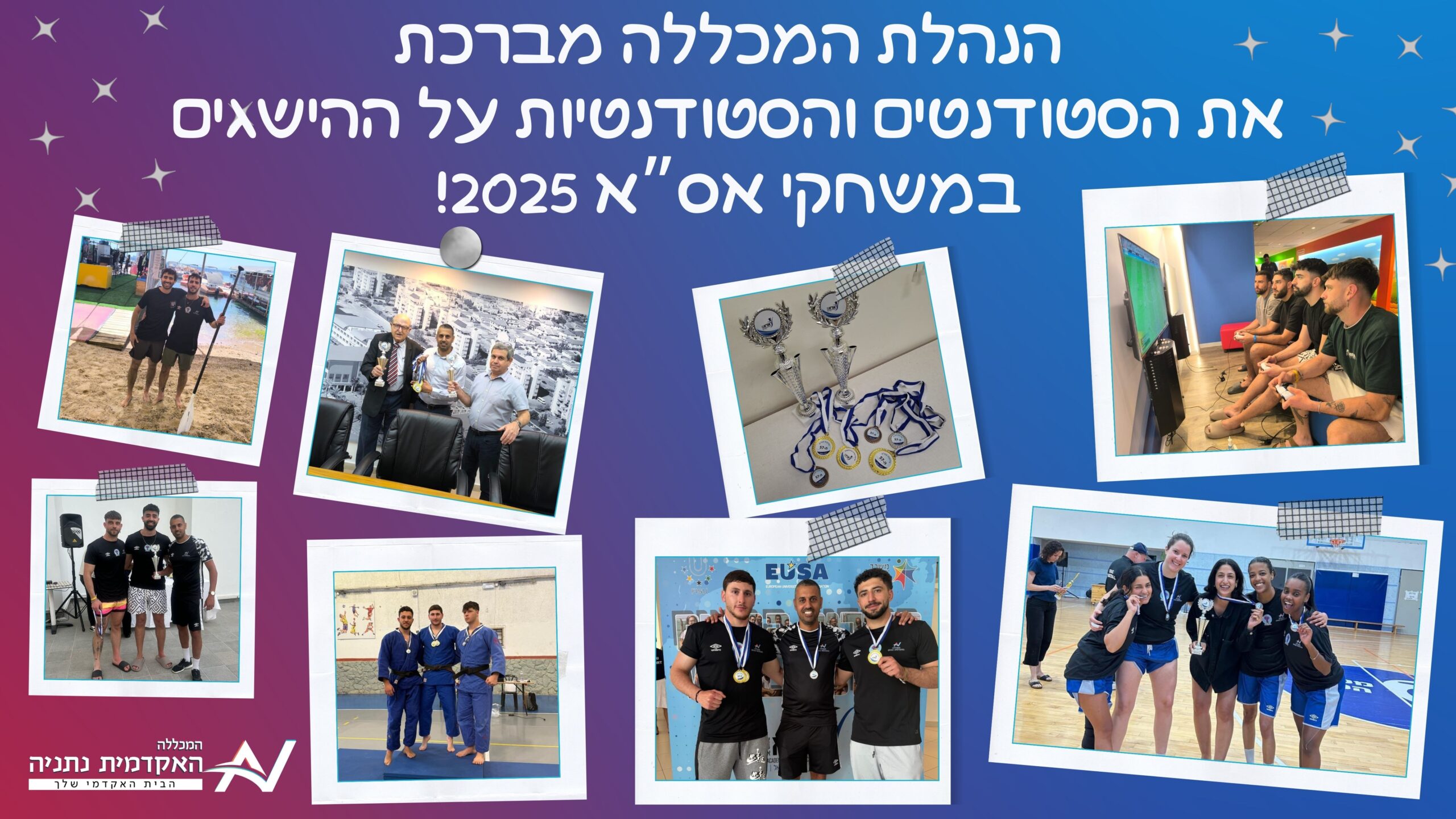ב. רשימת פרסומים
עבודת דוקטור דיסרטציה
קוליק, ל. (1992 )" שינויים במאזן הכוח בין בני הזוג לפני ואחרי הפרישה מהעבודה" . רמת גן: אוניברסיטת בר אילן, המחלקה לסוציולוגיה ולאנתרופולוגיה, בהדרכתה של ד"ר חיה בראלי ומיכאל כץ .
עבודת תזה לMA
קוליק, ל.( (1980)" לחץ אקדמי כמושפע מגורמי מצב ואישיות וכמתבטא בהתנהגות סטודנטים במוסדות אקדמאים" . חיפה: טכניון הפקולטה לתעשייה וניהול בהדרכתה של ד"ר מרים ארז.
ספרים
מילבאואר, ו. וקוליק, ל. (2010) "משפחות עובדות – הורים בשוק העבודה בישראל, היבטים חברתיים כלכליים ומשפטיים". ראשון לציון: הוצאת פלס של המסלול האקדמי המכללה למנהל (305 עמודים).
קוליק , ל. ( 2022) " לבלוב בעת שלכת – הפרישה מהעבודה בעידן של שינויים". תל אביב: הוצאת רסלינג (300 עמודים).
מאמרים באנגלית
Kulik, L. (2024). A Multivariate Model for Explaining Gender Differences in Commitment to Volunteering in the COVID-19 Pandemic. Journal of Emergency Management
Kulik, L. (2023). Sources of empowerment and mental health among retired men and women: An ecological perspective. Journal of Women & Aging, Jun 1-19.
Ibrahim-Dwairy, C and Kulik, L. (2022). Perceived stress among single Palestinian women In Israel: A mixed method research. Current Psychology. December,1-12
Kulik, L., (2022). Family-Work conflict and spousal aggression: A comparative analysis pre- and peri- COVID-19 pandemic. Journal of Aggression, Maltreatment & Trauma, 32(5), 688-708.
Kulik, L., (2022). A multi-variable model for explaining long-term commitment to volunteering among COVID-19 Volunteers. Analyses of Social Issues and Public Policy, 22(3), 794-816.
Kulik, L., & Ramon, D. (2022). The relationship between family-work conflict and spousal aggression during the COVID-19 pandemic. Community, Work & Family, 25(2), 240-259.
Kulik, L. (2022). Volunteering experience during emergencies: Comparative analysis of a military operation and a pandemic. Journal of Emergency Management 20(3), 225-240.
Kulik, L. (2020). Contribution of gender role ideology to explaining emotional wellbeing among working parents. Community, Work & Family, 23(3), 305-323.
Kulik, L. (2021). The centrality of resourcefulness in explaining wellbeing among financially challenged single mothers. Journal of Family Social Work, 24(3), 219-244.
Kulik, L., & Ramon, D. (2021). When mom earns more than dad: the parenting experience in light of new earning patterns. Journal of Family Issues, 42(6), 1166-1194.
Kulik, L. (2021). Multifaceted volunteering: The volunteering experience in the first wave of the COVID‐19 pandemic in light of volunteering styles. Analyses of Social Issues and Public Policy, 21(1), 1222-1242.
Kulik, L. (2019). Volunteering and subjective well-being among individuals with disabilities: A multivariate model. Nonprofit and Voluntary Sector Quarterly, 48(2_suppl), 174S-200S.
Kulik, L., & Liberman, G. (2019). Daily hassles in the family-work system and life satisfaction: the moderating effect of sexual satisfaction. Sexual and Relationship Therapy, 1-21.
Kulik, L., & Liberman, G. (2022). Stressors at the work-family interface and satisfaction with the quality of the couple relationship: a comparative analysis of men and women. Journal of Family Studies, 28(1), 255-276.
Kulik, L. (2019). Work–home conflict, antecedents, and outcomes: a life-stage perspective among working parents. Career Development International, 24(3), 257–274.
Kulik, L. (2018). Explaining egalitarianism in gender-role attitudes. Asian Women, 34(2), 61-87.
Kulik, L., Arnon, L. & Dolev, A. (2016). Explaining satisfaction with volunteering in emergencies: Comparison between organized and spontaneous volunteers. Voluntas: International Journal of Voluntary and Nonprofit Organizations, 27(3), 1280-1303.
Kulik, L., Shilo-Levin, S., & Liberman, G. (2016). Work–Family role conflict and well-being among women and men. Journal of Career Assessment, 24(4), 651-668.
Kulik, L. (2016). Volunteering during an emergency: A life stage perspective. Nonprofit and Voluntary Sector Quarterly, 46(2), 419-441.
Kulik, L., Bar, R., & Dolev, A. (2016). Gender differences in emergency volunteering. Journal of Community Psychology, 44(6), 695-713.
Kulik, L., Walfish, S. & Liberman, G. (2016). Spousal conflict resolution strategies and marital relations in late adulthood. Personal Relationships, 23(3), 456-474.
Kulik, L. (2016). Explaining men's and women's participation in household labor: Is there a need to reconsider existing theoretical perspectives? Asian Women, 32(4), 45-72.
Kulik, L., Shilo-Levin, S., & Liberman, G. (2016). The contribution of role satisfaction, meaning in life and work-home conflict to explaining well-being among working grandparents. Anxiety, Stress, & Coping, 30(3), 333-346.
Kulik, L. (2016). Explaining employment hardiness among women in Israel’s ultraorthodox community: Facilitators and inhibitors. Journal of Career Assessment, 24(1), 67-85.
Kulik, L., & Sadeh, I. (2015). Explaining fathers' involvement in childcare: An
ecological approach. Community, Work & Family, 18(1), 19-40.
Kulik, L., Shilo-Levin, S., & Liberman, G. (2015). Multiple roles, role satisfaction, and sense of meaning in life: An extended examination of role enrichment theory. Journal of Career Assessment, 23(1), 137-151.
Kulik, L., & Kitaichik, D. (2014). Marital intimacy and selected correlates of gender roles: A comparative analysis of Israeli husbands and wives. Women's Studies: An Inter-Disciplinary Journal, 43(6), 823-842.
Kulik, L., Shilo-Levin, S., & Liberman, G. (2014). Multiple roles, role conflict, and sense of meaning in life among working parents. Journal of Career Development, 42(4), 263-280.
Kulik, L., & Avero-Kassa, Y. (2014). Adjustment to divorce: A comparison of Ethiopian immigrant and Israeli-born men. Journal of Community Psychology. 42(2), 191-208.
Kulik, L. (2013). Internalized homophobia and distress among participants in support groups for homosexuals: Secular versus ultra-Orthodox participants. Jewish Journal of Sociology, 55(1), 158-178.
Kulik, L., & Liberman, G. (2013). Work–family conflict, resources, and role set density: Assessing their effects on distress among working mothers. Journal of Career Development, 40(5), 445-465.
Kulik, L. (2012). The impact of resources on women's strategies for coping
with work-home conflict: Does sociocultural context matter? Journal of Family Social Work, 15(3), 217-234.
Kulik, L., & Morgenstern, H, (2011). Does cohabitation matter? Differences in initial marital adjustment among women who cohabited and those who did not”. Families in Society, 92, 120-127.
Kulik, L., & Heine-Cohen, E. (2011). Coping resources, perceived stress and adjustment to divorce among Israeli women: Assessing effects. The Journal of Social Psychology, 151(1), 5-30.
Kulik, L. (2011). Developments in spousal power relations: Are we moving toward equality? Marriage & Family Review, 47(7), 419-435.
Kulik, L. & Megidna, H. (2011). Women empower women: volunteers and their clients in community service. Journal of Community Psychology, 39(8), 922–938.
Kulik, L., & Tsoref, H. (2010). Fathers’ entry into the maternal garden: Variables that explain paternal involvement in child care. Journal of Gender Studies, 10, 263-278.
Kulik, L. (2010). Women's experiences with volunteering: A comparative analysis by stages of the life cycle. Journal of Applied Social Psychology, 40(2), 360-388.
Kulik, L. & Tsoref, H. (2010). The entrance to the maternal garden: environmental and personal variables that explain maternal gatekeeping. Journal of Gender Studies, 19(3), 263-277.
Kulik, L., & Klein, D. (2010). Swimming against the tide: Characteristics of Muslim – Arab women in Israel who initiated divorce. Journal of Community Psychology, 38(7), 918-931.
Kulik, L., & Havusha-Morgenstern, H. (2010). An ecological approach to explaining women’s adjustment in the initial stage of marriage. Contemporary Family Therapy, 32(2), 192-208.
Kulik, L., & Erantal, T. (2009). Contemporary family relationships and life values: A comparative analysis of men and women in Israel. Families in Society, 90(2), 231-238.
Kulik, L. (2009). Explaining the sense of family coherence among husbands and wives: The Israeli case. The Journal of Social Psychology, 149(6), 627-647.
Kulik, L., & Tsoref, H. (2009). Explaining fathers' involvement in child care: recent findings from Israel. International Journal of Child & Family Welfare, 12(2-3), 97-115.
Kulik, L. (2009). Burnout, perceived stress, and resources among educated, working Jews and Moslem Arabs in Israel: A cross-cultural perspective. Journal of Cross-Cultural Psychology, 40(5), 894-900.
Kulik, L. (2008). Explaining the sense of family coherence among adolescents. International Journal of Child & Family Welfare, 2(3), 97-110.
Kulik, L. (2007). Explaining responses to volunteering: An ecological model. Nonprofit and Voluntary Sector Quarterly, 36(2), 239-255.
Kulik, L. (2007). Equality in the division of household labour: A comparative study of Jewish women and Arab Muslim women in Israel. The Journal of Social Psychology, 147(4), 423-440.
Kulik, L. (2007). Predicting responses to volunteering among adolescents in Israel: The contribution of personal and situational variables. VOLUNTAS: International Journal of Voluntary and Nonprofit Organizations, 18(1), 35-54.
Kulik, L., & Rayyan, F. (2006). Relationships between dual-earner spouses’ strategies for coping with home – work demands and emotional well-being: Jewish and Arab Muslim women in Israel. Community, Work and Family, 9(4), 457-477.
Kulik, L. (2006). Personality profiles, life satisfaction and gender-role ideology among couples in late adulthood:The Israeli case. Personality and Individual Differences, 40(2), 317-329.
Kulik, L. (2006). The impact of spousal variables on life satisfaction of individuals in late adulthood: The Israeli case. International Journal of Comparative Sociology, 47(1), 54-72.
Kulik, L. (2006). Burnout among volunteers in the social services: The impact of gender and employment status. Journal of community psychology, 34(5), 541-561.
Kulik, L. (2006). Gender, gender identity, ethnicity, and stereotyping of children's chores: The Israeli case. Journal of Cross-Cultural Psychology, 37(4), 408-420.
Kulik, L. (2005). Impact of background variables on attitudes about family life: A comparative analysis of parents and offspring in Israel. Journal of Comparative Family Studies, 36(1), 139-145.
Kulik, L. (2005). Intra – familiar congruence in gender role attitudes and ethnic stereotypes: The Israeli case. Journal of Comparative Family Studies, 36(2), 289-303.
Kulik, L. (2005). Predicting gender role stereotypes among adolescents in Israel: The impact of background variables, personality traits, and parental factors. Journal of Youth Studies, 8(1), 111-129.
Kulik, L. (2005). The impact of family status on gender identity and on sex-typing of household tasks in Israel. The Journal of social psychology, 145(3), 299-316.
Kulik, L., & Kronfeld, M. (2005). Adjustment to breast cancer: The contribution of resources and causal attributions regarding the illness. Social Work in Health Care, 41(2), 37-57.
Kulik, L. (2004). Strategies for managing home-work conflict and psychological well-being among Jews and Arabs in Israel: The impact of sex and sociocultural context. Families in Society, 85(1), 139-147.
Kulik, L. (2004). The impact of birth order on intergenerational transmission of attitudes from parents to adolescent sons: The Israeli case. Journal of Youth and Adolescence, 33(2), 149-157.
Kulik, L. (2004). Perceived equality in spousal relations, marital quality, and life satisfaction: A comparison of elderly wives and husbands. Families in Society, 85(2), 243-250.
Kulik, L. (2004). Transmission of attitudes regarding family life from parents to adolescents in Israel. Families in Society, 85(3), 345-353.
Kulik, L. (2004). Predicting gender-role attitudes among mothers and their adolescent daughters in Israel. Affilia, 19(4), 437-449.
Kulik, L. (2004). The Relationship between background variables and sex-typing of gender roles and children’s chores: The Israeli case. International journal of comparative sociology, 45(5), 365-384.
Kulik, L. (2004). Predicting gender role ideology among husbands and wives in Israel: A comparative analysis. Sex Roles, 51(9/10), 575-587.
Kulik, L., & Rayyan, F. (2003). Spousal relations and well-being: A comparative analysis of Jewish and Arab dual-earner families in Israel. Journal of Community Psychology, 31(1), 57-73.
Kulik, L. (2003). Morning passages from home to work among managers in Israel: Inter-gender differences. Sex Roles, 48(5/6), 205-215.
Kulik, L., & Rayyan, F. (2003). Wage-earning patterns, perceived division of domestic labor and social support. Sex Roles, 48(2), 53-66.
Kulik, L. (2002). The impact of social background on gender role ideology: Parents’ versus children’s attitudes. Journal of Family Issues, 23(1), 53-73.
Kulik, L. (2002). Equality in marriage, marital satisfaction, and life satisfaction: A comparative analysis of pre-retired and retired men and women in Israel. Families in Society, 83(2), 197-208.
Kulik, L. (2002). Perceived effects of voluntarism on marital life in late adulthood. Journal of Sociology and Social Welfare, 29(2), 35-52.
Kulik, L. (2002). Marital equality and the quality of long-term marriage in later life. Ageing & Society, 22(4), 459-481.
Kulik, L. (2002). Like-sex vs. opposite-sex effects: Transmission of gender role ideology from parents to adolescents in Israel. Journal of Youth and Adolescence, 31(6), 451-457.
Kulik, L. (2001). The impact of men’s and women’s retirement on marital relations: A comparative analysis. Journal of Women and Aging, 13(2), 21-37.
Kulik, L. (2001). Marital relationships in late adulthood: Synchronous versus asynchronous couples. The International Journal of Aging and Human Development, 52(4), 323-339.
Kulik, L. (2001). Marital relations in late adulthood, throughout the retirement process. Ageing and Society, 21, 447-469.
Kulik, L. (2001). Assessing job search intensity and unemployment-related attitudes among young adults. Journal of Career Assessment, 9(2), 153-167.
Kulik, L. (2001). Attitudes toward spousal caregiving and their correlates among aging women. Journal of Women and Aging, 13(3), 41-58.
Kulik, L. (2001). Attitudes toward spousal caregiving in late adulthood: Retirement versus pre-retirement phase. Journal of Gerontological Social Work, 35(2), 37-57.
Kulik, L. (2001). The impact of gender and marital status on attitudes and responses to unemployment. Sociological Practice: A Journal of Clinical and Applied Sociology, 3(1), 19-32.
Kulik, L. (2001). The impact of length of unemployment and age on jobless men and women: A comparative analysis. Journal of Employment and Counselling, 38(1), 15-27.
Kulik, L. (2000). Gendered personality disposition and gender role attitudes among Israeli students. The Journal of Social Psychology, 139(6), 736-747.
Kulik, L. (2000). Intra -familiar congruence in gender-role ideology: Husband-wife versus parents-offspring. Journal of Comparative Family Studies, 31(1), 91-106.
Kulik, L. (2000). Gender identity, sex typing of occupations, and gender role ideology among adolescents: Are they related? International Journal for the Advancement of Counselling, 22(1), 43-56.
Kulik, L. (2000). The impact of education and family attributes on attitudes and responses to unemployment among men and women. Journal of Sociology and Social Welfare, 27(2), 161-184.
Kulik, L. (2000). Women perceptions of work, family and society: A comparative analysis of Israeli and Soviet immigrants. Self, Agency & Society, 3(1), 96-119.
Kulik, L. (2000). Women face unemployment: A comparative analysis of age groups. Journal of Career Development, 27(1), 15-33.
Kulik, L. (2000). Jobless men and women: A comparative analysis of job search intensity, attitudes toward unemployment, and related responses. Journal of Occupational and Organizational Psychology, 73(4), 487-500.
Kulik, L. (2000). The impact of gender and age on attitudes and reactions to unemployment: The Israeli case. Sex Roles, 43(1-2), 85-102.
Kulik, L. (1999). Marital power relations, resources and gender role ideology: A multivariate model of assessing effects. Journal of Comparative Family Studies. 30(2), 189-206.
Kulik, L. (1999). Continuity and discontinuity in marital life after retirement: Life orientations, gender-role ideology, intimacy, and satisfaction. Families in Society, 80(3), 286-294.
Kulik, L. (1999). The impact of evaluation procedure on occupational sex-typing at different educational levels. Journal of Career Assessment, 7(4), 415-427.
Kulik, L. (1998). Life orientation and work attitudes of Israeli males who make atypical career choices. Journal of Psychology and Judaism, 22(2), 101-115.
Kulik, L. (1998). Anticipated dependence: A determinant in an integrative model of conjugal power relations among elderly couples. Journal of Aging Studies, 1(4), 363-377.
Kulik, L. (1998). Inter and intra-gender differences in life orientations and work attitudes. International Journal for the Advancement of Counselling, 20(2), 95-111.
Kulik, L. (1998). Occupational sex-typing and occupational prestige: A comparative study of adolescent and adults in Israeli. Youth and Society, 30(2), 164-181.
Kulik, L. (1998). The effect of gender and social environment on gender role perceptions and sex identity: A comparative study of kibbutz and urban adolescence in Israel. Journal of Community Psychology, 30(6), 533-548.
Kulik, L., & Bareli, H. Z. (1997). Continuity and discontinuity in attitudes toward marital power relations: pre-retired vs retired husbands. Ageing & Society, 17(5), 571-595.
Kulik, L. (1997). Sex-typing of occupations in the Israeli education system: Students versus teachers. Journal of Career Development, 24(2), 103-114.
Kulik, L. (1996). Contemporary perceptions of work and occupations among Israeli students: Are there gender differences? Journal of Psychology and Judaism, 20(3), 233- 247.
Kulik, L. (1995). Perceptions of conjugal relations among Israeli males: pre-retirement vs. early and late retirement phases. Contemporary Family Therapy, 18(1), 115-128.
Kulik, L. (1995). The impact of ethnic origin and gender on perceptions of gender roles: The Israeli experience. Journal of Social Behavior and Personality: Gender in the Workplace, 10(6), 199-214.
Kulik, L. (1995). The impact of ethnic origin and gender on image of occupations and salience of work rewards: A multicultural approach. International Journal for the Advancement of Counselling, 18(2), 85-96.
Kulik, L. (1995). Attitudes of retired men toward conjugal life: The Israeli context. International Review of Modern Sociology, 25(2), 1-16.
Kulik, L. (1993). The conjugal division of power in late adulthood in Israeli society. Sociological Papers, 2(4), 1-18.
מאמרים בעברית
קוליק, ל. ( 2023). גורמי לחץ במערכת העבודה-משפחה ומצוקה נפשית בראייה מגזרית ומגדרית: ניתוח משווה בין יהודים שאינם חרדים, חרדים וערבים, ובין גברים לנשים. בטחון סוציאלי,120 131-162
קוליק, ל. (2023). אובדן משאבים, מצוקה נפשית ומשמעות בחיים בתקופת הפרישה מהעבודה מהיבט מגדרי. חברה ורווחה, מ"ב (4), 458-435.
קוליק, ל.(2022). פוסחים על שלושת הסעיפים: מתח, העשרה ואיזון בקרב הורים עובדים ולומדים. סוציולוגיה ישראלית, כ"ג (2) , 131-88 .
קוליק, ל. רמון, ד. ובלקני־נהורא, מ.' (2022). סומכות רק על עצמן :מתח התמודדות והערכת יעילות בעבודה בקרב אימהות שעבדו מהבית בגל הראשון של מגפת הקורונה. סוגיות חברתיות בישראל, 31 (1), 38-5.
קוליק, ל. בר, ר. וארנון, ל'. (2021). הבדלים מגדריים בהסבר מחויבות להתנדבות בגל הראשון של מגפת הקורונה. סוגיות חברתיות בישראל, 30 (2), 270-235.
קוליק, ל. (. (2021 הקשר בין שוויוניות לבין עוינות ביחסי הזוגיות: ניתוח משווה בין גברים לנשים. חברה ורווחה, מ"א (1), 77-49.
קוליק, ל. (2018). עמדות כלפי שוויוניות בתפקידי מגדר: ניתוח משווה לפי מין ונטייה מינית. מגמות, נ"ג (2), 44-7.
קוליק, ל. (2017). מהקושי תצמח העוצמה התנדבות והערכה עצמית בקרב אנשים עם מוגבלויות פיזיות. חברה ורווחה, 37, 58-27.
קלונובר, א. סוסקולני, ו. וקוליק, ל. ( 2016). ניבוי של החזקת קונדום והשימוש בו בקרב גברים הומוסקסואלים בישראל. מגמות, נ (2), 189-153 .
קוליק, ל. וכץ, א. (2016). האם בעל הדעה הוא בעל המאה? יחסים זוגיים בראי דפוסי הפרנסה. מגמות, נ"א (1), 442-411 .
קוליק, ל. (2013). בישולים סידורים או תיקונים . מבטם של גברים על השתתפותם בעבודות הבית. חברה ורווחה, 33, 385-313.
קוליק, ל. וחדד, מ. ( 2012). הומופוביה מופנמת ותחושת לחץ בקרב משתתפים בקבוצות תמיכה להומוסקסואלים חילונים מול חרדים. חברה ורווחה, ל"ב (2), 235-209 .
קוליק, ל. קלונובר, א. (2007 ). שביעות רצון ושחיקה נפשית בקרב מתנדבים בתקופת אמצע החיים ובבגרות המאוחרת: גישה אקולוגית. סוגיות חברתיות בישראל, 3, 75-45 .
קוליק, ל. (2006 ). חוויית ההתנדבות ומשאבי ההתנדבות בקרב נשים בשירותי הרווחה : ניתוח משווה, על־פי תקופות חיים. ביטחון סוציאלי, 72, 104-77 .
קוליק, ל. ורייאו, פ. (2005). יחסים זוגיים, אסטרטגיות התמודדות עם קונפליקט בית – עבודה ורווחה נפשית ניתוח משווה בין נשים יהודיות לנשים ערביות. מגמות, מ"ג (4), 658-633.
קוליק, ל. (2003). שיווניות ביחסים הזוגיים בבגרות המאוחרת ותרומתה להסבר שחיקה נפשית ושביעות רצון בנישואין. חברה ורווחה, כ"ג (4), 433-411 .
קוליק, ל. (2001). זוגיות בתהליך הפרישה לגמלאות : גברים מול נשים. חברה ורווחה, כ"א (4), 467-487.
קוליק, ל. (1995). עמדות של גברים מסורתיים ומודרניים כלפי יחסי כוח זוגיים : ניתוח משווה גרונטולוגיה, 69, 48-35 .
קוליק, ל. (1994). הבדלים בעמדות עבודה בין סטודנטים ישראלים לסטודנטים עולי חבר העמים. אדם ועבודה, 5, 34-20 .
קוליק, ל. (1992). שינוים במאזן הכוח הזוגי, במשאבים ובאוריינטציית החיים לפני ואחרי הפרישה מהעבודה. גרונטולוגיה, 56-57 ,90-80.
ספרים
קוליק, ל. ( 2022). לבלוב בעת שלכת: הפרישה מהעבודה בעידן של שינויים. תל אביב: הוצאת רסלינג.
מילבאואר, ו. וקוליק, ל. (2010). משפחות עובדות: הורים בשוק העבודה בישראל, היבטים חברתיים, כלכליים ומשפטיים. ראשון לציון: פלס, המכללה למנהל.
פרקים בספרים
Kulik, L. (2018). Experience of Work Family Conflict: A Comparative Analysis between Active and Supportive Parenting Stages. In J. A Jaworski,. (Ed.). Advances in Sociology Research (Vol.25), New York, NY: Nova Science Publishers.
Kulik, L. (2016). Spousal role allocation and equity in midlife and late life. In J.Bookwala (Ed.), Couple relationships in mid and late life current perspectives (pp. 135-156). Washington, DC: American Psychological Association.
Kulik, L. (2014). The impact of multiple roles on the well-being of older women: Strain or enrichment. In V. Muhlbauer, J. C. Chrisler, & F. L. Denmark (Eds.), Women and Aging: An International, Intersectional Power Perspective (pp. 51-69). New York, NY: Springer Publications.
Kulik, L. (2010). “His”, “her” and “their” perceptions of family life: A comparative analysis of fathers, mothers, and adolescents. In A. M. Columbus (Ed.), Advances in Psychology Research (Vol. 71, pp. 139-157). New York, NY: Nova Science Publishers, Inc.
Kulik, L., & Eranthal, T. (2009). Gender differences in life values: The Israeli case. In J H. Urlich &B. T. Cosell (Eds.), Handbook on gender roles: Conflicts, attitudes and behaviors (pp. 282-297). New York, NY: Nova Science Publishers, Inc.
Kulik, L. (2009). Explaining individual empowerment among elderly women volunteers in nonprofit organizations: The Israeli case. In M. Bergmann and T. Faust (Eds.), Handbook of business and finance: Multinational companies, venture capital and non-Profit organizations (pp. 101-122). New York, NY: Nova Science Publishers.
Kulik, L., & Heine-Cohen, E. (2008). Coping resources and adjustment to divorce among women: An ecological model. In J. K. Quinn & I.G. Zambini (Eds.), Family relations: 21st century issues and challenges (pp. 87-109). New York, NY: Nova Science Publishers Inc.
Kulik, L. (2007). Contemporary midlife grandparenthood. In V. Muhlbauer & J.C. Chrisler (Eds.), Women over 50: Psychological perspectives (pp. 131-146). New York, NY: Springer Publications.
Kulik, L. (2002). "His" and "her" marriage: Differences in spousal perceptions of marital life in late adulthood. In S.P. Shohov (Ed.), Advances in psychology research (vol. 17). New York: Nova Science Publishers.
קוליק, ל. ( 2010). אסטרטגיות התמודדות עם קונפליקט בית – עבודה בראי תרבותי: ניתוח משוה בין נשים יהודיות לנשים ערביות מוסלמיות. בתוך ו'. מילבאור ול'. קוליק (עורכות), משפחות עובדות: הורים בשוק העבודה בישראל היבטי חברתיים כלכליים ומשפטיים ( עמ' 247-276 (. ראשון לציון: הוצאת פלס.
קוליק, ל. וקלונובר, א'. (2010). יחסי כוח בזוגיות – מבט לאורך זמן ובתוך הקשר תרבותי. מילבאור, ו. ול. קוליק (עורכות), משפחות עובדות: הורים בשוק העבודה בישראל היבטי חברתיים כלכליים ומשפטיים ( עמ' 142-117 (. ראשון לציון: הוצאת פלס.
Encyclopaedia entry
Kulik, L. ( 2007). Later life marriage. In G. Ritzer (Ed.), Encyclopaedia of Sociology (pp.1-3). London: Blackwell (entry).
Kulik, L. ( 2007). Long-term marriages. The Encyclopaedia of Adulthood
and Aging. Wiley Online Library.














